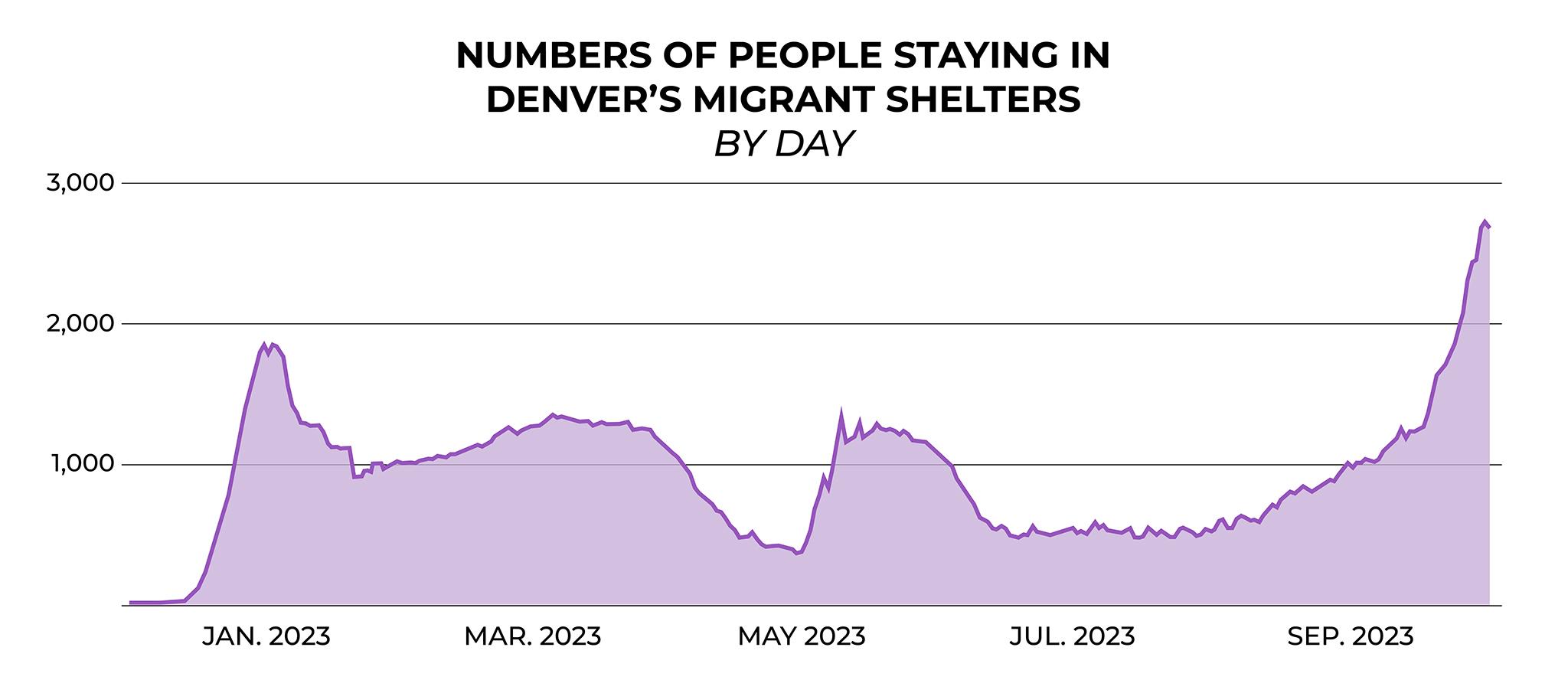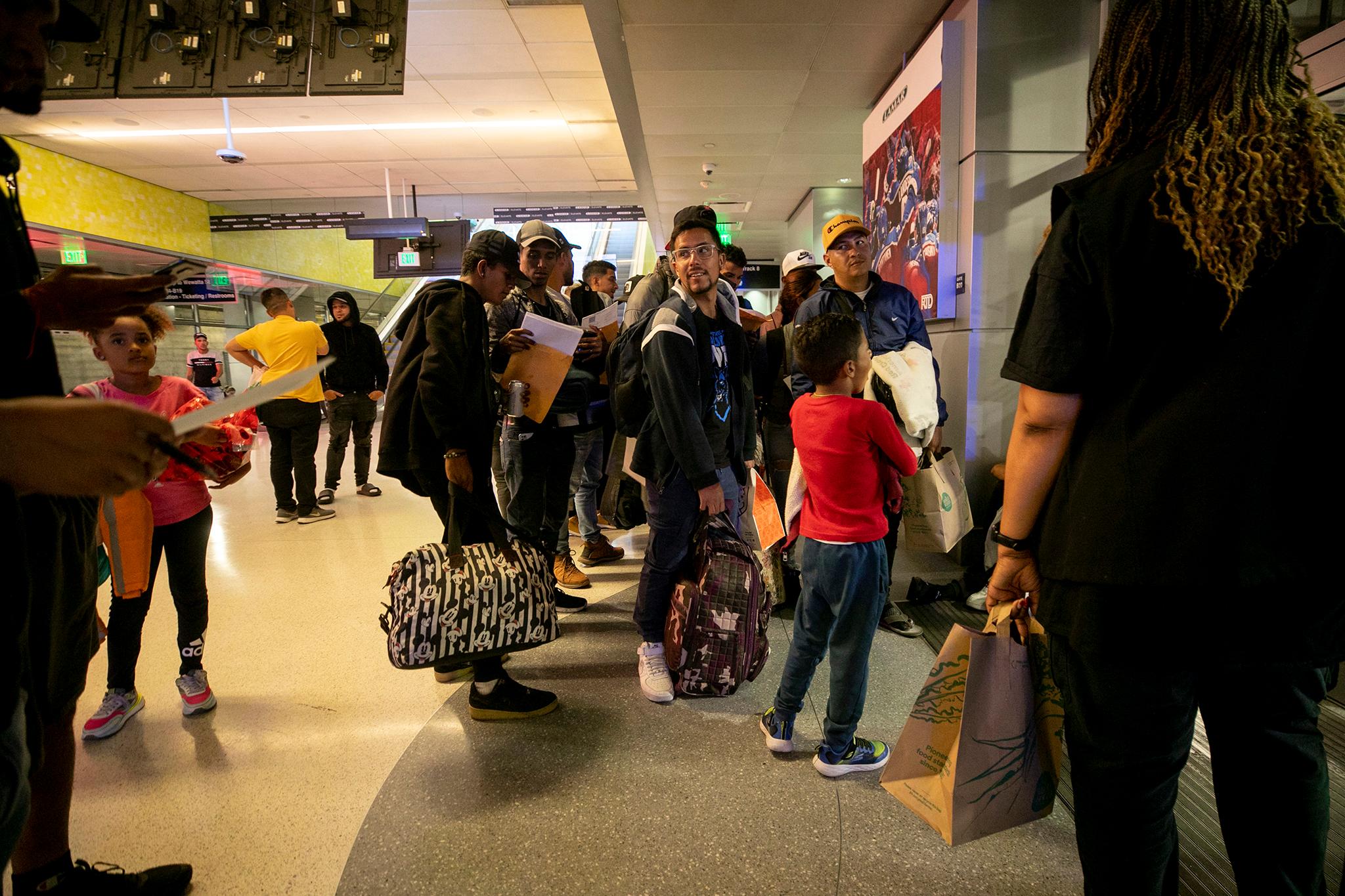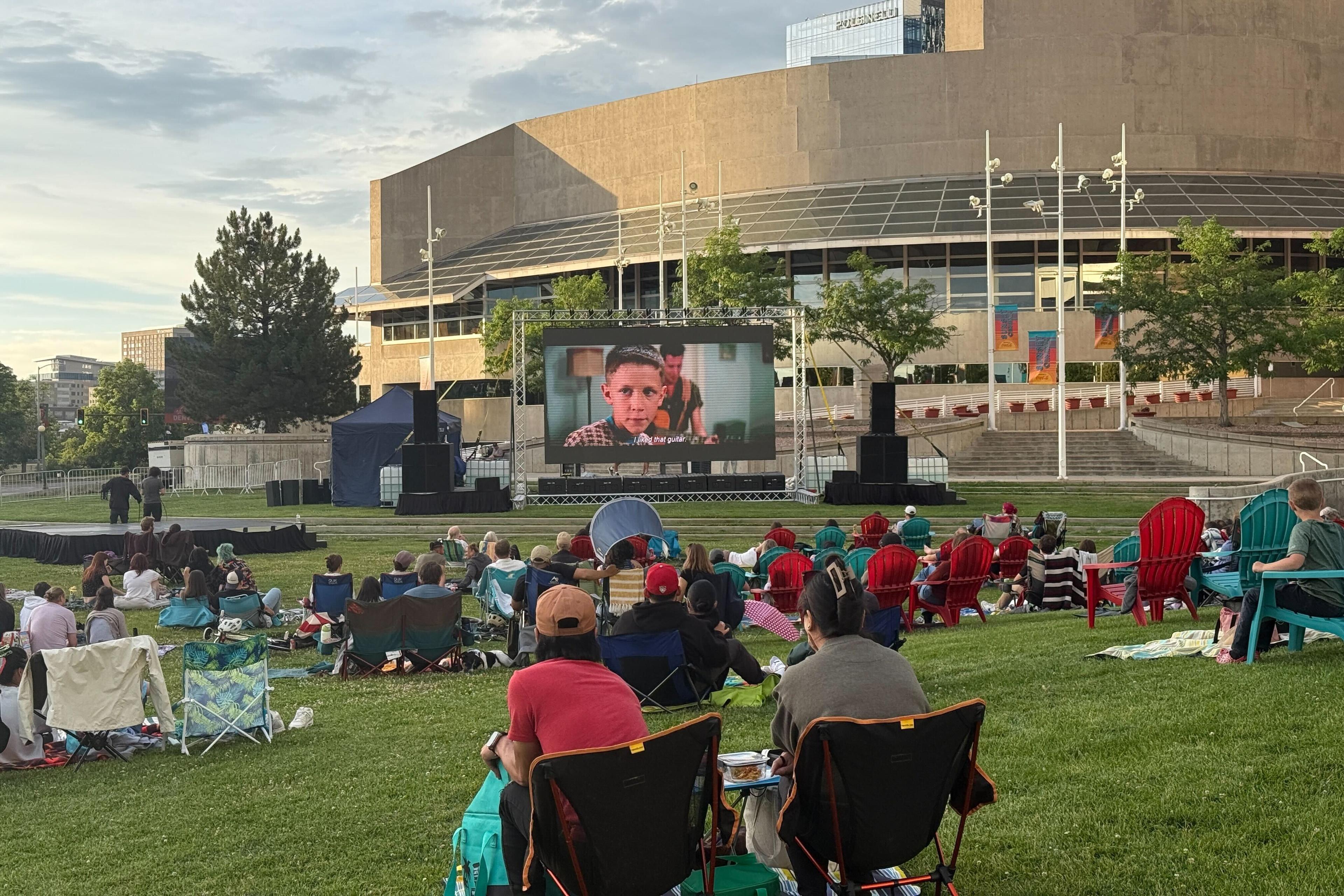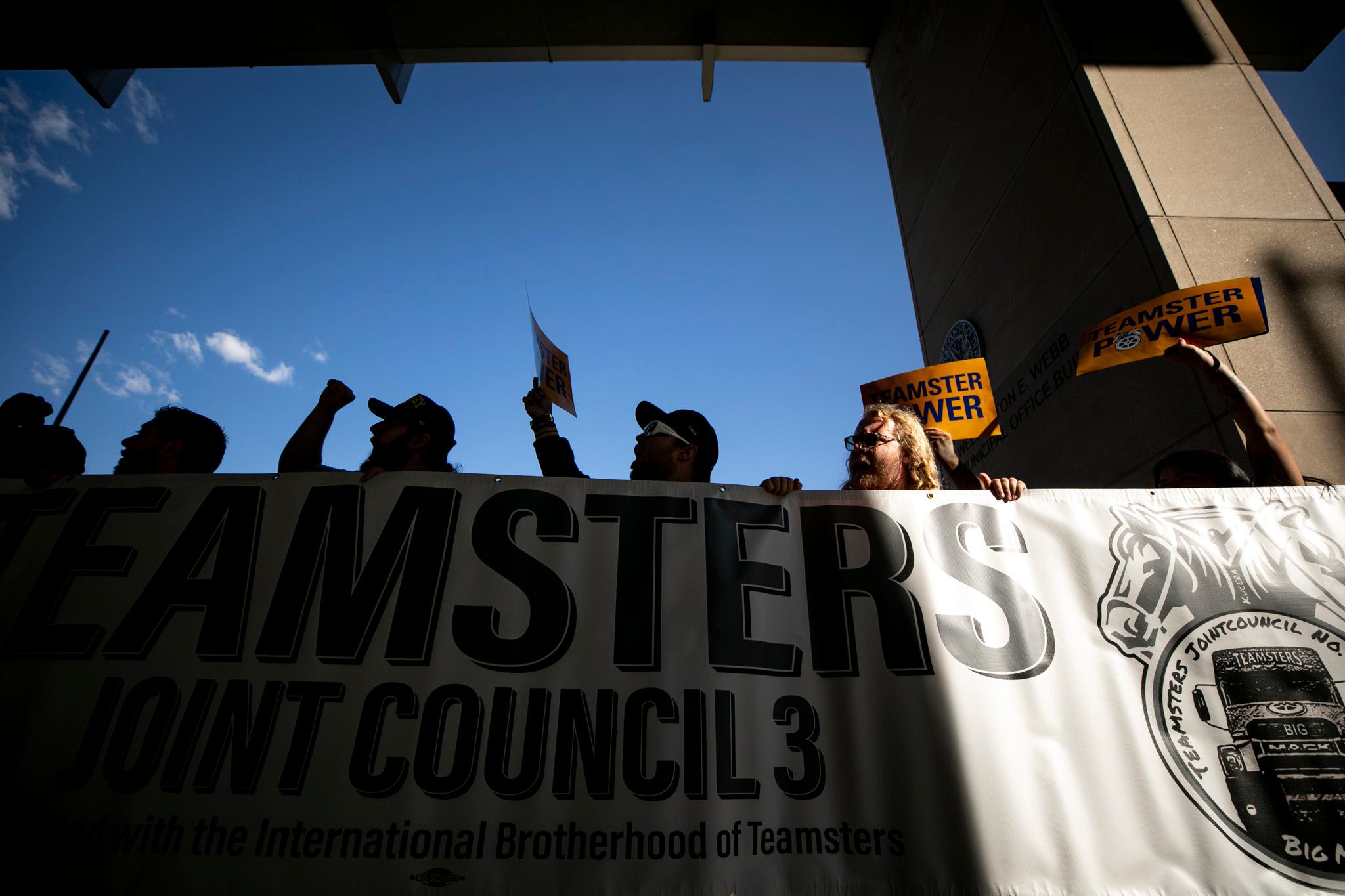Denver is currently sheltering nearly 2,500 migrants -- a figure higher than at any other point in the past year.
That's because arrivals have spiked again in recent weeks, with nearly 300 people arriving in the city on Monday. It's the third time in the past year that Denver has adjusted to address migrant arrivals. The city mobilized emergency operations for thousands of arrivals in December and May.
Denver has seen an average of 300 people arrive per day in the past week, according to the city, compared to an average of 125 people per day in mid-September. In response, city spokesperson Jon Ewing announced that, starting Wednesday, the city is shortening its shelter stay for migrant adults from 21 to 14 days. The city is increasing the stay limit for families with children from 30 days to 37 days.
"This influx - the third, following the initial wave in December and a second surge in May - is affecting shelter capacity and straining staffing availability," Ewing wrote in a statement issued this week.

As of Monday, the city's emergency operations center, which is currently focused on Mayor Mike Johnston's House1000 homelessness initiative, activated the Mass Care Department Operations Center to deal with the increase in migrant arrivals.
What's happening in Denver reflects an increase in border crossings into the U.S., something that dropped off this past summer after a federal rule change. But since then, crossings have since gone back up.
While nonprofits have been helping people make their way to Denver for months, arrivals have also spiked in part due to buses sent specifically from Texas Governor Greg Abbott's administration. Abbott's office made clear that people boarding buses signed consent forms, but added that the buses in part aim to send a political statement to Democrat-led cities and President Joe Biden.
According to the city, nine buses arrived in Denver from Texas this past Sunday.
Meanwhile, the city is in the process of choosing private partners to contract out the shelter work.
In July, former Mayor Michael Hancock backed off a $40 million contract with international security firm GardaWorld, which would have provided all inclusive sheltering services. City Councilmembers and activists questioned the company's track record.
Now, Mayor Mike Johnston's administration has put out a request for proposals (RFP) with the goal of partnering with a number of more local groups to support migrant arrivals. The city is in the process of evaluating proposals for program management, shelter operations, donation operations, a migrant reception center and transportation. Proposals are due Oct. 13.
Johnston said his administration is budgeting $20 million for its migrant response, with the expectation that things could change. Since the city's first emergency response in December of 2022, Denver has spent $26 million on its migrant response. The city has received $3.5 million from the state and more than $9.5 million from the federal government. But city leaders across the country have called on the U.S. government to do more.
In the meantime, Denver has continued its call for donations and volunteer support, including through its Newcomers Fund and in-person donation site at the Richard T. Castro Human Services Center.
"Denver is primarily responsible for providing temporary, emergency shelter," Ewing said. "With the arrival of cold weather on the horizon, Denver is calling on communities around the state to support the sheltering effort, and on nonprofits, faith-based organizations, and individuals to aid in the response by volunteering, joining the effort as a contract worker, and donating needed items such as clothing."












